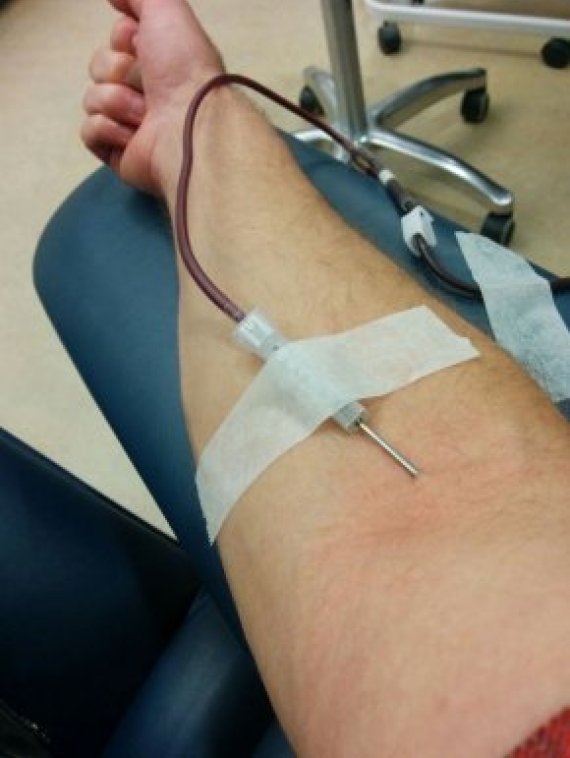In 2012, there was a controversy about the expensive drugs used to treat Pompe disease and Fabry disease. A plan to stop reimbursing the costs foundered but the debate continued. Some experts say that an extra year of life in good health (QALY) should cost no more than 80,000 euros. However, that is not yet a generally accepted standard.
Until now, the price of safe donor blood has never been at issue, says Hans Zaaijer, professor of Blood-Transmitted Infections at the University of Amsterdam. This is surprising because the blood bank Sanquin already performs tests that are much more expensive than 80,000 euros per QALY. For instance, all donor blood is screened twice for viruses: once using a cheap test and once with a more expensive and more sensitive test. The additional infections found by the expensive test are so few that the costs amount to millions of euros per QALY. Zaaijer: ‘In fact, the HIV test has never detected an infection that the cheap test hadn’t found.’
Verweij and Kramer looked for ethical arguments for the idea that blood safety deserves more resources than other forms of healthcare. But none of the arguments were convincing. For instance, the philosophers do not see a blood transfusion as a ‘risk imposed’ on patients; it is a medical intervention like any other, with a proportionate risk. There are also no identifiable individuals needing rescue who will profit from safer blood, a moral argument for spending more resources.
In addition, say Verweij and Kramer, the money that is saved can do much more good elsewhere. There are huge opportunity costs from high healthcare expenses that deliver few results. ‘It is not about money versus ethics,’ says Verweij. ‘A cost-benefit analysis is also ethics.’
Incidentally, Verweij does not think it is up to philosophers to make the decision. ‘Blood has a special significance,’ says Verweij. ‘If society wants blood to be as safe as possible whatever the cost, it may be irrational but it is still legitimate from a democratic perspective.’

